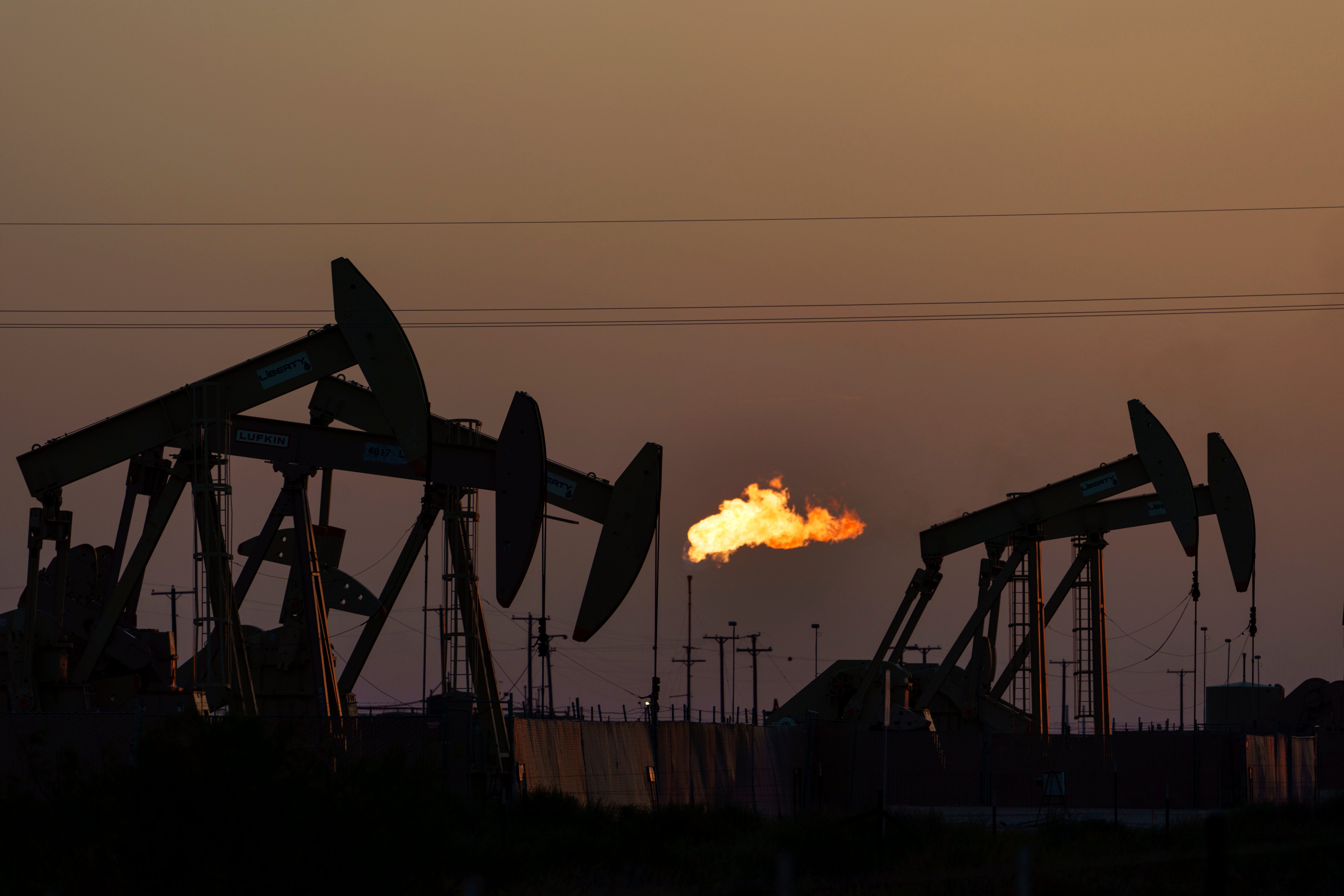Global oil and gas emissions ‘up to three times higher than companies claim’
Fossil fuel firms are responsible for half of the 50 largest sources of damaging emissions on earth, new inventory reveals

Your support helps us to tell the story
From reproductive rights to climate change to Big Tech, The Independent is on the ground when the story is developing. Whether it's investigating the financials of Elon Musk's pro-Trump PAC or producing our latest documentary, 'The A Word', which shines a light on the American women fighting for reproductive rights, we know how important it is to parse out the facts from the messaging.
At such a critical moment in US history, we need reporters on the ground. Your donation allows us to keep sending journalists to speak to both sides of the story.
The Independent is trusted by Americans across the entire political spectrum. And unlike many other quality news outlets, we choose not to lock Americans out of our reporting and analysis with paywalls. We believe quality journalism should be available to everyone, paid for by those who can afford it.
Your support makes all the difference.Global emissions of climate-altering greenhouse gases from oil and gas are up to three times higher than claimed by the companies producing them, according to detailed new research.
The work, released amid the UN’s Cop27 climate summit, is the most comprehensive and specific global inventory of greenhouse gas emissions to date, detailing the emissions data for 72,612 individual sources worldwide.
It reveals the enormous scale at which greenhouse gas emissions are increasing, and also the huge level of under-reporting by polluting industries, which are undermining efforts to combat the worsening climate crisis.
The inventory includes data for specific power plants, steel mills, urban road networks, and oil and gas fields.
Combined it provides a picture of the top known sources of emissions including the power sector, oil and gas production and refining, shipping, aviation, mining, waste, agriculture, road transportation, and the production of steel, cement and aluminium.
The research team found that of the 50 largest sources of emissions on the planet, half of them are oil and gas production fields and their associated facilities.
The top 500 biggest sources of emissions represent less than 1 per cent of the total list of polluters but account for 14 per cent of global emissions for 2021 – more than the annual emissions of the United States.
The project, called Climate Trace, will help provide the detail on emissions "needed to inform and accelerate decarbonization decisions worldwide", the team said. They said this will allow world leaders, chief executives, investors, journalists, and activists to track progress toward net-zero goals and make decisions to help reduce climate impacts.
Former US vice president and Climate Trace founding member Al Gore, said: “The climate crisis can, at times, feel like an intractable challenge – in large part because we’ve had a limited understanding of precisely where emissions are coming from.
“This level of granularity means that we finally have emissions data that enable us to act decisively. It also means we can prioritise efforts to achieve the deep cuts in greenhouse gas pollution we need to prevent the most catastrophic impacts of the climate crisis.”
The team said that among their findings, emissions from oil and gas production, transport, and refining had been "significantly underestimated".
They said this was due, in part, "to limited reporting requirements and consistent underestimates of methane emissions from both intentional flaring as well as leaks".
Gavin McCormick, founder and executive director of Climate Trace convening member WattTime, said: “Between us all, we’ve been able to estimate the emissions of nearly all the largest emitting facilities on the planet. Our work is far from done, but I’ve been thrilled to hear from climate negotiators, corporate sustainability teams, investors looking to decarbonise, climate scientists, and even activists that this information is already a game changer that can help them make better decisions and decarbonise faster."




Join our commenting forum
Join thought-provoking conversations, follow other Independent readers and see their replies
Comments